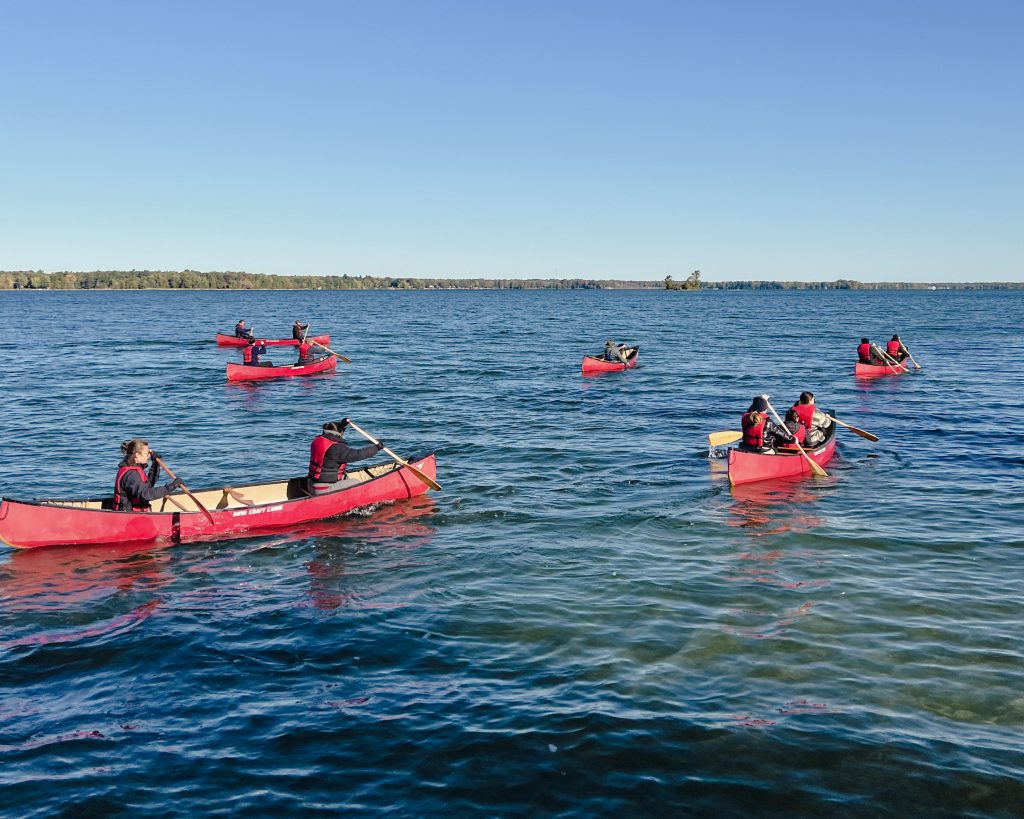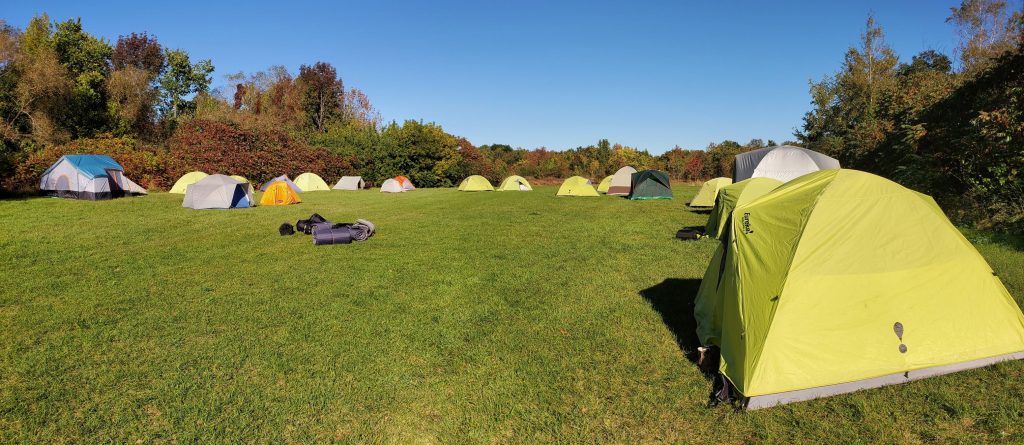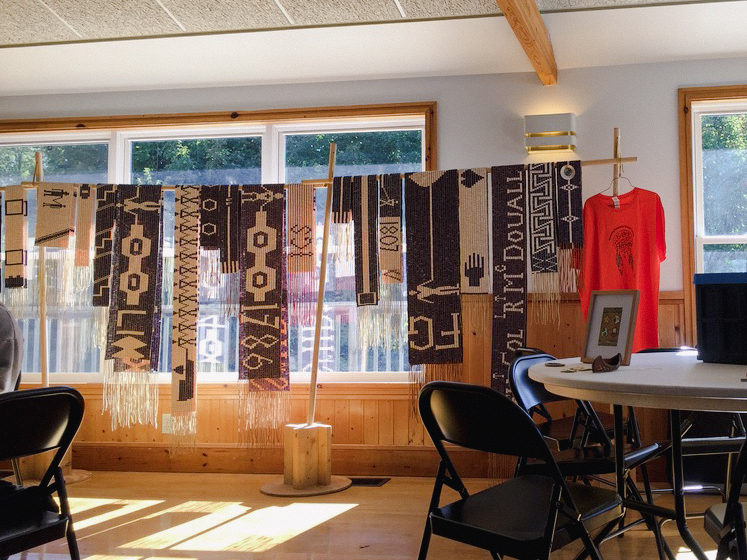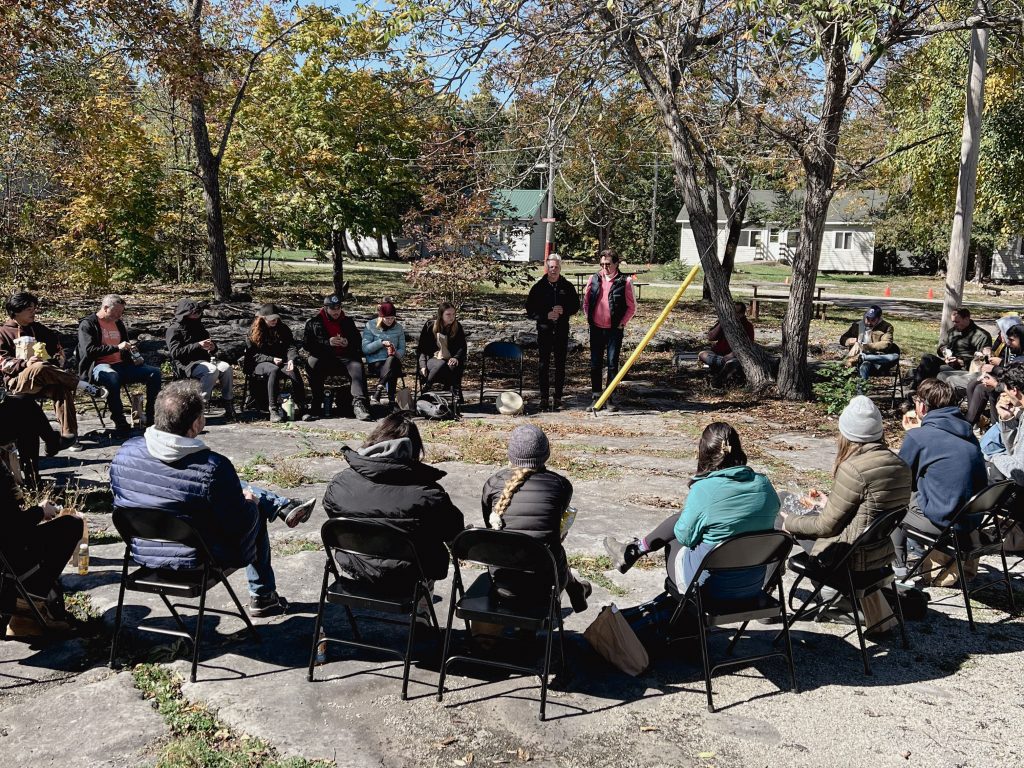Participants reflect on their experiences learning Indigenous law on the territory of the Chippewas of Rama Mnjikaning First Nation

In 2016, U of T Law introduced the Indigenous Law in Context program, a three-night intensive course designed to teach upper-year law students Indigenous law and legal traditions from a land-based perspective. Student participants in the program have the opportunity to receive teachings from elders and other members of the community, while being immersed in traditional practices.
After U of T Law paused the program during the pandemic, it returned this year and included joint activities with Osgoode Hall Law School students. Led by U of T Law Professor John Borrows, the program took place on the territory of the Chippewas of Rama Mnjikaning First Nation, outside Orillia, Ontario. The program ran for four days and three nights from September 29 to October 2. Students camped as a group on the First Nation’s lands throughout the program.

To participate in the Indigenous Law in Context program, students were required to show a demonstrated and specific interest in learning about Indigenous law and legal traditions. Ultra Vires asked participants the following question: what is one thing that will stick with you from your experience over the four-day intensive? Below are their thoughts.
Troy Klassen (3L):
“It’s hard to choose just one thing. I consider the whole weekend to be one of the most enriching and formative experiences of my time in law school. In those four days, I was exposed to a vision of law beyond the assumptions of Western European traditions. I was introduced to law as an action done with others, focused on the relations between me and other beings (human or otherwise), not as self-interested individuals, but as parts of a whole. It was more than an academic exercise. It was, dare I say, a spiritual experience, one that I hope will inform the way I practice law for years to come.”

Jasman Gill (3L):
“The Indigenous Law in Context intensive was an incredible experience! We were able to take part in various cultural practices of Indigenous people throughout the weekend. The events required us to be open, personable, and even vulnerable with one another. As a result, I was reminded about the importance of learning from my peers and the value of having a strong community. My personal favourite was the Sweat Lodge ceremony, a purification rite that leaves you in a tranquil state of balance.”
Jane Fallis Cooper (3L):
“While the entire experience was incredibly impactful, the ability to learn and grow in a community environment, where people were so open to learning new things in a new way, was really special. As Professor Hewitt said on the first day when he encouraged us to take no notes and instead sit with the information and teachings, this way of learning really prompted us to work together and to ask each other about parts we may have missed. A big thank you/chi-miigwetch to the professors and Rama First Nation! To all 1Ls and 2Ls, I’d highly recommend attending next year if you’re able.”

Rhea Murti (2L):
“One thing that will stick with me from the law camp weekend is a feeling of responsibility. It was quite impactful to experience the warmth and generosity with which members of Rama First Nation welcomed us into their community and brought together leading Indigenous knowledge keepers, teachers, and lawyers for four days of immersion in Anishinaabe law and ceremony. The experience left me with a deep sense of gratitude and a clear understanding of my duty to put the knowledge I gained into practice as a future lawyer in Canada, by centering Indigenous legal orders and helping to protect Indigenous land, rights, and ways of being.”
Mohammed M’Hiri (3L):
“I would say the need to deconstruct the formal thinking that we approach the law with. When law is seen—as it is in Anishnaabe legal tradition—as an action and way to live your life, law takes on a whole new meaning in its application to our day-to-day lives. We go from looking at it as a guideline to specific aspects of our lives—wear your seatbelt, don’t speed—to a holistic approach to living for the benefit of all (including the natural world around us).”
Kyra McAlister (3L):
“One thing that will stick with me was the opportunity to learn about law outside of the classroom. This experience allowed me to connect with the land, my peers, and my hosts in ways that were deeper than traditional classroom learning. Overall, I developed a different perspective on Indigenous law and how Canadian common law has impacted Indigenous communities from being outdoors and directly in the community.”





